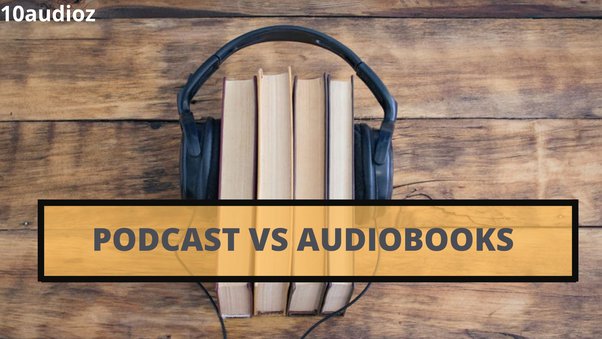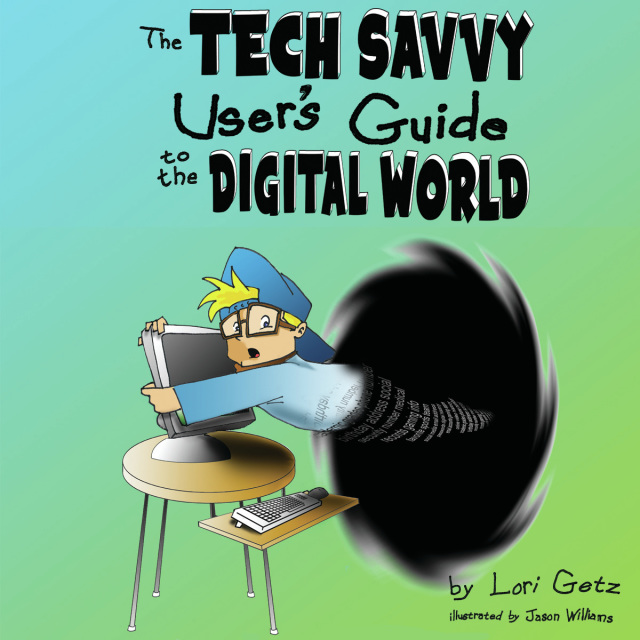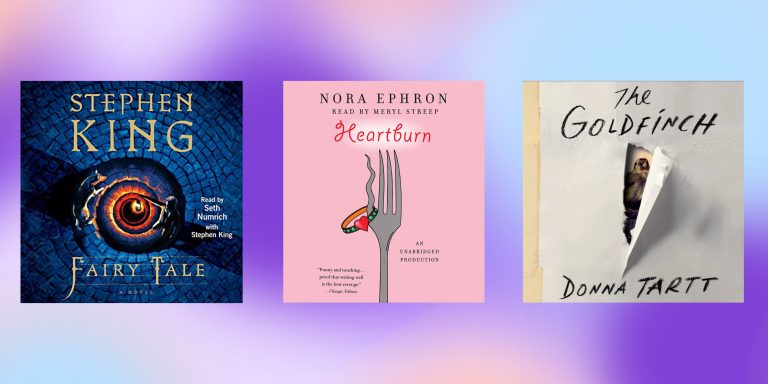What Is The Difference Between A Podcast And An Audiobook?
Podcasts and audiobooks have become increasingly popular forms of entertainment and education in the digital age. But what exactly sets them apart? If you’ve ever found yourself wondering, “What is the difference between a podcast and an audiobook?” you’re in the right place. In this article, we’ll dive into the contrasting features and unique benefits of these two mediums, so you can make an informed choice about which one suits your preferences.
When it comes to podcasts, think of them as the modern-day radio shows. They are audio programs that cover a wide range of topics, from true crime and comedy to self-help and storytelling. What makes podcasts so appealing is their conversational and informal nature. Hosted by individuals or groups, podcasts often feature lively discussions, interviews, and even audience participation. They provide an immersive and engaging experience, inviting listeners into the conversation as if they’re part of a community. With thousands of podcasts available on various platforms, you can easily find one that piques your interest and keeps you coming back for more.
On the other hand, audiobooks offer a different kind of listening experience. Imagine having someone read a book to you while you sit back and relax. That’s essentially what an audiobook is. It’s a narrated version of a printed book, allowing you to enjoy the story without having to physically read it. Audiobooks are professionally recorded and often feature talented voice actors who bring the characters and plot to life. They are perfect for those who love literature but prefer to consume it in a more auditory format. You can listen to audiobooks while commuting, exercising, or even doing household chores, making it a convenient way to fit more reading into your busy schedule.
In summary, while both podcasts and audiobooks offer captivating audio content, they differ in terms of format and style. Podcasts are like interactive radio shows, providing a conversational and community-oriented experience. On the other hand, audiobooks are narrated versions of printed books, allowing you to enjoy literature through audio narration. Whether you’re looking for engaging conversations or immersive storytelling, both mediums have something unique to offer. So, sit back, put on your headphones, and explore the world of podcasts and audiobooks. It’s time to indulge in the power of audio entertainment and expand your horizons.
Podcasts and audiobooks are both popular forms of audio entertainment, but they have some key differences. A podcast is a series of digital audio or video files that are released in episodes, often covering a specific topic or theme. They are typically free to listen to and can be subscribed to through various platforms. On the other hand, an audiobook is a narration of a book that is recorded and available for purchase or rental. It allows listeners to enjoy books in audio format, often with professional voice actors or authors reading the text. So, while both offer audio content, podcasts are more episodic and cover a range of topics, while audiobooks are typically full-length book narrations.

Understanding the Difference Between a Podcast and an Audiobook
When it comes to audio content, two popular mediums that often come to mind are podcasts and audiobooks. Both offer a unique way to consume information and entertainment, but what exactly sets them apart? In this article, we will delve into the differences between podcasts and audiobooks, exploring their formats, purposes, and the overall experience they provide.
Podcasts: A Blend of Informative and Engaging Content
Podcasts have gained immense popularity in recent years, offering a diverse range of topics and formats to suit every interest. They are essentially digital audio shows that cover various subjects, including news, storytelling, interviews, education, and much more. What sets podcasts apart is their ability to engage listeners through conversational and interactive formats.
One of the key benefits of podcasts is their accessibility. They are typically free to listen to and can be accessed through various platforms and apps, making them widely available to anyone with an internet connection. Additionally, podcasts are episodic in nature, with new episodes being released regularly, allowing listeners to stay up-to-date with their favorite shows.
Podcasts offer a unique opportunity for hosts and guests to share their expertise and stories with a wider audience. They often feature insightful discussions, interviews with industry experts, and thought-provoking narratives. The conversational format of podcasts creates a sense of connection between the hosts and the listeners, making them feel like they are a part of the conversation.
The Benefits of Podcasts
1. Variety of topics: Podcasts cover a vast range of subjects, ensuring there is something for everyone’s interests.
2. Accessibility: They are easily accessible through different platforms and can be listened to on-the-go.
3. Engaging format: Podcasts create a sense of connection and intimacy, making listeners feel involved in the conversation.
4. Free to listen: Most podcasts are free, allowing listeners to enjoy high-quality content without any cost.
How Podcasts Compare to Audiobooks
While podcasts offer a conversational and interactive experience, audiobooks take a different approach. Audiobooks are essentially narrated versions of written books, allowing listeners to enjoy books through spoken words. They provide an immersive storytelling experience, with professional narrators bringing the characters and plot to life.
Audiobooks are often associated with fiction and literature, but they also cover a wide range of genres, including self-help, business, and non-fiction. They offer a convenient way for book lovers to enjoy their favorite titles while engaging in other activities such as commuting, exercising, or relaxing.
Unlike podcasts, audiobooks are usually not free and need to be purchased or accessed through subscription services. However, they provide a polished and professional listening experience, with high-quality production values and expert narration. Audiobooks offer a more focused and uninterrupted experience, allowing listeners to fully immerse themselves in the story or information being presented.
The Benefits of Audiobooks
1. Professional narration: Audiobooks are narrated by skilled professionals who bring the story to life.
2. Immersive experience: They provide a focused and uninterrupted listening experience, allowing for deep engagement.
3. Wide genre selection: Audiobooks cover various genres, offering something for every literary taste.
4. Convenient listening: They can be enjoyed while multitasking or engaging in other activities.
While both podcasts and audiobooks offer unique audio experiences, they cater to different preferences and purposes. Whether you prefer the conversational and interactive nature of podcasts or the immersive storytelling of audiobooks, both mediums provide valuable and entertaining content that can enrich your audio journey.
Exploring the Impact and Future of Audio Content
In recent years, audio content has witnessed a surge in popularity, with podcasts and audiobooks becoming an integral part of people’s daily lives. The convenience and accessibility of audio content have contributed to its widespread adoption, allowing individuals to consume information and entertainment on-the-go.
The Growing Popularity of Podcasts
Podcasts have experienced a remarkable rise in popularity, with millions of episodes available on various platforms. The ease of creating and distributing podcasts has led to a diverse range of shows covering a vast array of topics. From true crime and personal development to comedy and pop culture, there is a podcast for every interest.
Furthermore, podcasts have become a powerful platform for individuals and organizations to share their stories, expertise, and opinions. They offer a level of authenticity and intimacy that is often absent in other forms of media. Listeners feel a connection with the hosts and guests, fostering a sense of community and engagement.
The Future of Podcasting
As technology continues to advance, the future of podcasting looks promising. With the rise of smart speakers and voice assistants, accessing and consuming podcasts has become even more convenient. The integration of podcasts into cars and other smart devices further expands their reach and accessibility.
Additionally, the monetization of podcasts through sponsorships and advertising has opened up opportunities for content creators to generate income. This allows them to produce high-quality shows and invest in their podcasting ventures. With the growing popularity and potential revenue streams, podcasting is expected to continue thriving in the years to come.
The Rise of Audiobooks
Audiobooks, too, have seen a significant increase in popularity, driven by advancements in technology and changing consumer habits. With busy schedules and limited time for reading, many people turn to audiobooks as a convenient alternative. They provide the opportunity to enjoy literature while engaging in other activities.
The availability of audiobooks through platforms like Audible and various streaming services has made them easily accessible to a wide audience. Users can listen to their favorite titles on their smartphones, tablets, or dedicated audiobook devices.
What Lies Ahead for Audiobooks
The future of audiobooks looks promising, with more publishers and authors recognizing their potential. The increased demand for audiobooks has led to a wider selection across different genres, ensuring there is something for every listener. The continued improvement in narration and production quality enhances the overall listening experience.
Furthermore, the integration of audiobooks with smart devices and the rise of voice-controlled technology further simplifies the listening process. As the audiobook industry continues to evolve and adapt to changing consumer preferences, it is expected to witness sustained growth and innovation.
Conclusion
In conclusion, podcasts and audiobooks offer distinct audio experiences that cater to different preferences and purposes. Podcasts engage listeners through conversational formats, covering a wide range of topics and fostering a sense of connection. On the other hand, audiobooks provide immersive storytelling experiences, allowing listeners to enjoy literature in a convenient and focused manner.
As the popularity of audio content continues to grow, both podcasts and audiobooks are expected to play a significant role in shaping the future of entertainment and information consumption. Whether you prefer the dynamic and interactive nature of podcasts or the immersive storytelling of audiobooks, there is a wealth of valuable content awaiting your ears.
Key Takeaways: What is the difference between a podcast and an audiobook?
- A podcast is a series of audio episodes that are typically released on a regular basis, while an audiobook is a recorded version of a book.
- Podcasts are usually free to listen to, while audiobooks often require a purchase or subscription.
- Podcasts cover a wide range of topics and can be created by anyone, while audiobooks are typically professionally narrated and focus on specific books.
- Podcasts are often more conversational and interactive, with hosts and guests discussing various subjects, while audiobooks are more focused on telling a story or providing information.
- Podcasts are usually shorter in length, ranging from a few minutes to an hour, while audiobooks can be several hours long, equivalent to the length of a book.
Frequently Asked Questions
Are you curious about the difference between a podcast and an audiobook? Look no further! In this article, we will explore the distinctions between these two popular forms of audio content. Read on to discover the key differences and decide which one suits your preferences.
Question 1: Are podcasts and audiobooks the same thing?
No, podcasts and audiobooks are not the same thing. While both involve audio content, there are fundamental differences between them. A podcast is a series of spoken episodes, typically in an episodic format, covering a wide range of topics. It often features discussions, interviews, storytelling, or educational content. On the other hand, an audiobook is a recorded version of a written book, read aloud by a narrator. It allows you to listen to a book’s content instead of reading it.
Podcasts are usually free to access, while audiobooks often require a purchase. Additionally, podcasts are regularly released, with new episodes becoming available on a scheduled basis. Audiobooks, on the other hand, follow the structure of a single book and are not released in episodes.
Question 2: How are podcasts and audiobooks consumed?
Podcasts are easily accessible through various platforms, such as podcasting apps, websites, and streaming services. Once you subscribe to a podcast, new episodes will automatically download or stream to your device. You can listen to podcasts at your convenience, pausing and resuming whenever you like. Audiobooks, on the other hand, are typically purchased and downloaded from online stores or library apps. Once downloaded, you can listen to them offline on your preferred device.
Both podcasts and audiobooks can be enjoyed on smartphones, tablets, computers, or dedicated audio devices. They provide a convenient way to consume content while on the go, whether you’re commuting, exercising, or simply relaxing at home.
Question 3: How do the formats differ between podcasts and audiobooks?
Podcasts are available in various formats, such as interviews, panel discussions, storytelling, educational content, and more. They often feature multiple hosts or guests, offering different perspectives and voices. Podcasts can be interactive, allowing listeners to participate by sending in questions or comments. The episodic nature of podcasts allows for ongoing storytelling or exploration of different topics within a series.
Audiobooks, on the other hand, follow a linear narrative structure, just like their printed counterparts. They are typically read by a single narrator, providing a consistent voice throughout the book. Audiobooks allow you to experience the full content of a book, including the author’s writing style, character development, and plot progression. They are ideal for those who enjoy immersing themselves in a complete literary work.
Question 4: Which one is better for learning or entertainment?
Both podcasts and audiobooks offer unique advantages for learning and entertainment. Podcasts excel in providing up-to-date information, expert insights, and diverse perspectives. They cover a wide range of topics, from science and history to true crime and personal development. Podcasts often feature interviews with industry experts, making them valuable sources of knowledge and inspiration.
Audiobooks, on the other hand, offer a more immersive experience for literary enthusiasts. They allow you to fully immerse yourself in a book’s narrative, characters, and themes. Audiobooks are particularly useful for those who prefer to listen rather than read or have limited time for traditional reading. They are a great way to enjoy classic literature, contemporary novels, or even self-help books.
Question 5: Can podcasts and audiobooks be enjoyed together?
Absolutely! There are no rules against enjoying both podcasts and audiobooks. In fact, many people find pleasure in switching between the two depending on their mood or interests. You can listen to a podcast episode during your daily commute or while doing chores, and then dive into an audiobook when you want a more immersive storytelling experience. Both forms of audio content offer a rich and engaging way to learn, be entertained, and make the most of your audio listening time.
Ultimately, the choice between podcasts and audiobooks depends on your personal preferences, interests, and the type of content you are seeking. Whether you prefer the episodic nature of podcasts or the complete narrative experience of audiobooks, both options provide a wonderful way to engage with audio content.
Podcast vs Audiobook Recordings
Final Summary: What Sets Podcasts and Audiobooks Apart?
So, there you have it – the key differences between podcasts and audiobooks. While both offer an immersive audio experience, they cater to different preferences and needs. Podcasts, with their conversational and episodic nature, are perfect for those seeking informative and entertaining content on a regular basis. On the other hand, audiobooks provide a more focused and uninterrupted storytelling experience, appealing to bookworms and literature enthusiasts.
When it comes to accessibility, podcasts are usually available for free on various platforms, making them accessible to a wide audience. Audiobooks, on the other hand, often require a purchase or subscription, making them more suitable for dedicated readers who want to delve into their favorite books on the go.
In terms of production, podcasts are typically independently created, allowing for a diverse range of voices and perspectives. Audiobooks, on the other hand, are professionally narrated and produced, ensuring high-quality performances and a polished listening experience.
Ultimately, whether you choose to dive into the captivating world of podcasts or lose yourself in the pages of an audiobook, both mediums offer unique and engaging ways to consume content. So, grab your headphones, tune in, or press play – there’s a world of audio adventures waiting for you to explore!




